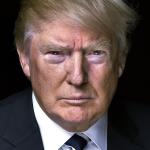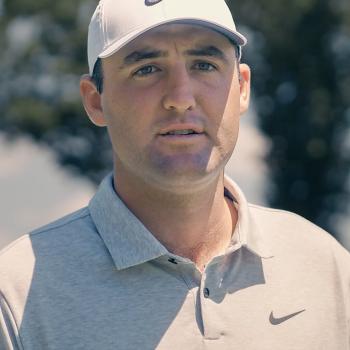 The PGA Tour is in an unprecedented state of chaos that began last year when Saudi-backed upstart LIV Golf tour emerged to challenge the king of pro golf tours in the world. LIV did it mostly by offering huge sums of money to mostly the top star players on the PGA Tour to also compete in LIV’s new tour schedule. It was eight tournaments last year. They had a different format, being conducted only three rounds-days, instead of the standard four-round tournaments, and it involved an innovative team golf concept. About fifteen PGA Tour players and some DP World Tour (formerly European Tour) accepted the money offers and defected to LIV.
The PGA Tour is in an unprecedented state of chaos that began last year when Saudi-backed upstart LIV Golf tour emerged to challenge the king of pro golf tours in the world. LIV did it mostly by offering huge sums of money to mostly the top star players on the PGA Tour to also compete in LIV’s new tour schedule. It was eight tournaments last year. They had a different format, being conducted only three rounds-days, instead of the standard four-round tournaments, and it involved an innovative team golf concept. About fifteen PGA Tour players and some DP World Tour (formerly European Tour) accepted the money offers and defected to LIV.
Both tours then banned those LIV members for violating their by-laws. In the case of the PGA Tour, those LIV defectors, beginning with Phil Mickelson, were so penalized because they did not adhere to the “release clause” rule. That requires that a PGA Tour member must request permission from the Commissioner Jay Monahan to participate in a “conflicting event.” The latter refers to a golf tournament held somewhere else in the world the same week as a PGA Tour tournament.
Most golf fans do not understand very well how the PGA Tour operates. The PGA Tour cannot exist at all, as we know it, without this “release clause” mostly due to its sponsor agreements. All Tour sponsors desire what is called “representative fields.” That means that the PGA Tour players who compete in their sponsored tournaments expect some star players that fans want to see. It is a perfectly reasonable business expectation. These sponsors are mostly the Tour television package, which includes the major television networks, and all of the PGA Tour’s contracts with individual sponsors of tournaments. These are mostly large, American corporations. The television package alone is the source of nearly 60% of the PGA Tour’s purses.
LIV Golf then sued the PGA Tour and DP World Tour, and so did some of its member players. Those tours then countersued. The situation was becoming a financial strain on especially the PGA Tour, whereas LIV Golf is backed by Saudi Arabia’s sovereign wealth fund Public Investment Fund (PIF) which reportedly has about $700 or more billions in assets. Recent talk has been that PIF/LIV could bankrupt the PGA Tour. PIF is controlled by the Saudi Crown Prince Mohammed bin Salman. He is being accused of sports washing by trying to improve the Saudi reputation, which includes suppression of human rights. Thus, PIF has practically unlimited financial resources to keep fighting this out, whereas the PGA Tour and DP World Tour do not.
For this reason, Commissioner Monahan, along with two Wall Street businessmen who are members of the Tour’s Policy Board, secretly did an about-face by entering into a financial partnership between the PGA Tour and LIV Golf and then announced it to the world and PGA Tour members at the same time, thus without the latter knowing of it. This irked PGA Tour members who are now in an uproar about it and calling for the dismissal of Commissioner Monahan.
As I’ve been saying all along about this affair, it does not look like the PGA Tour I knew and loved and where I made my living. Whenever important decisions had to be taken, the leadership of the PGA Tour first came to the players by means of player meetings at tournaments, which the Tour still conducts, and would solicit the mindset of the collected players, perhaps even taking a vote. Only then would such important decisions be made.
This situation has caused the U.S. Congress to now get involved. Oregon Senator Ron Wyden heads a committee that is investigating all of this. Wyden is calling the PGA Tour’s decision to enter into a partnership with PIF the taking of “blood money.” Wyden is tough-cookie. He means that Saudi’s Salman was responsible for the assassination of Saudi dissident and world class journalist Jamal Khashoggi. He had defected to the U.S. under threat of murder and lived in Washington D.C. working for The Washington Post. And the families that lost loved ones in 9/11 are leading this allegation against PIF/LIV. So, Wyden is accusing the PGA Tour of a serious, moral indiscretion.
Moreover, Wyden is broadening his investigation to reconsider the PGA Tour’s 501c tax exempt status as a non-profit organization because of this ordeal. That could have huge ramifications if the PGA Tour lost this status. It has been investigated before by Congress and left intact. The PGA Tour serves local communities with its many tournament volunteers contributing their time and perhaps money which results in the tournament sponsors contributing to charities. No sports organization in the world has accomplished what the PGA Tour has done with its charity-based performance. But this has to some extent only been possible due to the PGA Tour’s tax exempt status.
Yesterday, forty-one PGA Tour members, including Tiger Woods, gave a letter they signed to Commissioner Jay Monahan demanding that Tiger Woods immediately be appointed as a member of the PGA Tour’s Policy Board, which governs the PGA Tour. The three top players in the world–Scottie Scheffler, Rory McIlroy and Jon Rahm–signed this letter. Scottie Scheffler is the #1 pro golfer in the world and a prominent member of the PGA Tour Bible Study.
The letter calls for a reconsideration of the PGA Tour’s governance structure. That has not happened since 1969, when I participated on a committee of about eight PGA Tour players, which included Jack Nicklaus, in which the Tour withdrew from its arrangement with the PGA America and went on its own. But that split was temporary. It was solved months later when the tournament division committee was replaced with the current Policy Board. And we created the position of commissioner. Both of these were great moves for the future of the PGA Tour. That was the biggest rupture in the history of the PGA Tour until now. This is much bigger.
Today, Commissioner Monahan announced that Tiger Woods is now a member of the PGA Tour’s Policy Board. Great! It is now looking as though the PGA Tour will get back to being–as I’ve always called it and as it should be–“the players organization.”













